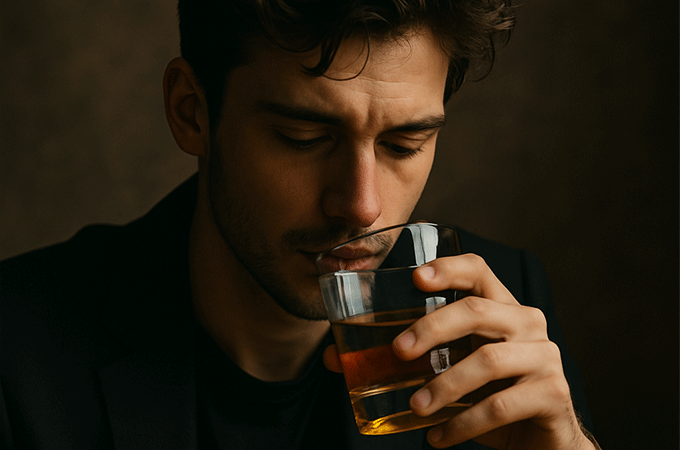Picture this: a lively office party, glasses clinking, and laughter filling the air. It’s easy to get swept up in the moment, pouring another drink without a second thought. But new research is sounding a wake-up call: that casual habit of heavy drinking at social events could be silently paving the way for liver cancer. A 2025 study from The Lancet Oncology has spotlighted a strong link between long-term excessive alcohol consumption and rising liver cancer rates, particularly among those with high-stress, tech-driven lifestyles. This isn’t about shaming the occasional toast—it’s about understanding the risks and taking steps to protect your liver. Here’s what the science says, why it matters, and how you can stay safe while still enjoying life’s celebrations.
The Sobering Link Between Alcohol and Liver Cancer
Liver cancer, especially hepatocellular carcinoma (HCC), is a growing global concern. While hepatitis infections have long been a top culprit, alcohol is now a major player, contributing to a significant percentage of HCC cases in regions like the U.S. and Europe. The latest research digs deeper, showing that long-term heavy drinking—especially at social events—dramatically increases your risk. A meta-analysis in Annals of Oncology found that even one drink a day can raise liver cancer risk, while heavy drinking (defined as three or more drinks daily) can significantly increase it.
How does alcohol do this? It’s all about chemistry. When you drink, your liver breaks alcohol down into acetaldehyde, a toxic byproduct that damages DNA and triggers inflammation. Over years, this can lead to fatty liver disease, hepatitis, and cirrhosis—the scarring that’s a major stepping stone to HCC. A 2025 study from JAMA explains that heavy drinking for 5 to 10 years, especially when paired with other stressors like poor diet or smoking, can increase HCC risk fivefold. Social events, where binge drinking (four or more drinks for women, five or more for men in one sitting) is common, amplify the damage. Posts on X, like one from @deborahmoss_, echo the concern: “Even small amounts of alcohol add up over time, raising risks for liver cancer.”
The Tech Connection: A Modern Twist
Here’s where things get interesting: the study highlights a surprising link between alcohol, high-tech lifestyles, and liver cancer. Professionals in tech-heavy fields—like software engineers or startup founders—often face high stress and long hours, which can lead to drinking as a way to unwind at social events. These gatherings, from happy hours to networking mixers, can normalize heavy alcohol use. Combine that with irregular sleep, processed foods, and constant screen time, and you’ve got a recipe for liver strain. A 2025 Frontiers in Oncology study suggests that chronic stress and poor lifestyle habits amplify alcohol’s toxic effects, speeding up liver damage. It’s not just about how much you drink—it’s about how your body handles it in today’s fast-paced world.
Your Guide to Safer Drinking
You don’t have to swear off alcohol entirely, but cutting back—especially at social events—can protect your liver. Here’s a practical guide to drinking smarter, based on the latest science:
- Know Your Limits: Stick to the U.S. Dietary Guidelines—up to one drink per day for women and two for men. A standard drink is 12 ounces of beer, 5 ounces of wine, or 1.5 ounces of spirits.
- Avoid Binge Drinking: Binge drinking is a major driver of liver cancer. At parties, pace yourself by sipping water between drinks and setting a two-drink cap.
- Eat Before You Drink: Food slows alcohol absorption, reducing liver stress. A 2023 Hepatology study showed that eating a balanced meal before drinking cuts down on toxic byproduct buildup.
- Take Alcohol-Free Breaks: Giving your liver a break is crucial. Try “dry” weeks or months to allow your liver to rest and repair. A 2021 study found that quitting alcohol for just one month can lower liver inflammation markers.
- Manage Stress Without Alcohol: High-tech lifestyles can fuel drinking. Try stress-busters like meditation, exercise, or hobbies. A 2024 Journal of Clinical Medicine study found that mindfulness can help cut alcohol cravings by a significant margin.
Pro Tip: If you’re at a social event, try a non-alcoholic mocktail. They’re trendy, tasty, and liver-friendly. Apps like “Rethinking Drinking” from the National Institute on Alcohol Abuse and Alcoholism can help you track your intake.
The Bigger Picture: A Call to Action
Liver cancer rates are climbing, with alcohol playing a starring role. In 2020, alcohol caused an estimated 740,000 cancer cases globally, including liver, breast, and colorectal cancers, per a study in The Lancet. Yet, less than half of Americans know alcohol is a carcinogen. The U.S. Surgeon General’s recent advisory calls for warning labels on alcohol and better public education. This is urgent—liver cancer’s five-year survival rate is low, making prevention critical.
The tech connection adds urgency for younger, high-stress professionals. Social events shouldn’t be a health hazard, but they can be when “just one more” becomes a habit. As Dr. Yin Cao, a cancer epidemiologist at Washington University, says, “Alcohol’s risks are cumulative, but so are the benefits of cutting back.” By rethinking drinking, you’re not just saving your liver—you’re investing in a healthier future.
This article draws on a 2025 study in The Lancet Oncology, supported by data from JAMA (2025), Cancers (2025), and Frontiers in Oncology (2025). Additional insights come from posts on X, including @theliverdr and @deborahmoss_, and expert commentary from Dr. Yin Cao.

